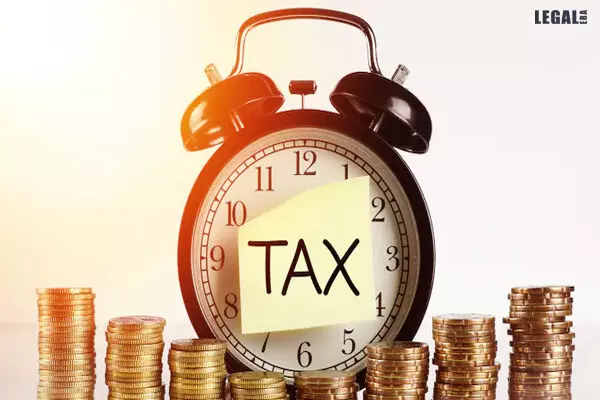- Home
- News
- Articles+
- Aerospace
- Artificial Intelligence
- Agriculture
- Alternate Dispute Resolution
- Arbitration & Mediation
- Banking and Finance
- Bankruptcy
- Book Review
- Bribery & Corruption
- Commercial Litigation
- Competition Law
- Conference Reports
- Consumer Products
- Contract
- Corporate Governance
- Corporate Law
- Covid-19
- Cryptocurrency
- Cybersecurity
- Data Protection
- Defence
- Digital Economy
- E-commerce
- Employment Law
- Energy and Natural Resources
- Entertainment and Sports Law
- Environmental Law
- Environmental, Social, and Governance
- Foreign Direct Investment
- Food and Beverage
- Gaming
- Health Care
- IBC Diaries
- In Focus
- Inclusion & Diversity
- Insurance Law
- Intellectual Property
- International Law
- IP & Tech Era
- Know the Law
- Labour Laws
- Law & Policy and Regulation
- Litigation
- Litigation Funding
- Manufacturing
- Mergers & Acquisitions
- NFTs
- Privacy
- Private Equity
- Project Finance
- Real Estate
- Risk and Compliance
- Student Corner
- Take On Board
- Tax
- Technology Media and Telecom
- Tributes
- Viewpoint
- Zoom In
- Law Firms
- In-House
- Rankings
- E-Magazine
- Legal Era TV
- Events
- Middle East
- Africa
- News
- Articles
- Aerospace
- Artificial Intelligence
- Agriculture
- Alternate Dispute Resolution
- Arbitration & Mediation
- Banking and Finance
- Bankruptcy
- Book Review
- Bribery & Corruption
- Commercial Litigation
- Competition Law
- Conference Reports
- Consumer Products
- Contract
- Corporate Governance
- Corporate Law
- Covid-19
- Cryptocurrency
- Cybersecurity
- Data Protection
- Defence
- Digital Economy
- E-commerce
- Employment Law
- Energy and Natural Resources
- Entertainment and Sports Law
- Environmental Law
- Environmental, Social, and Governance
- Foreign Direct Investment
- Food and Beverage
- Gaming
- Health Care
- IBC Diaries
- In Focus
- Inclusion & Diversity
- Insurance Law
- Intellectual Property
- International Law
- IP & Tech Era
- Know the Law
- Labour Laws
- Law & Policy and Regulation
- Litigation
- Litigation Funding
- Manufacturing
- Mergers & Acquisitions
- NFTs
- Privacy
- Private Equity
- Project Finance
- Real Estate
- Risk and Compliance
- Student Corner
- Take On Board
- Tax
- Technology Media and Telecom
- Tributes
- Viewpoint
- Zoom In
- Law Firms
- In-House
- Rankings
- E-Magazine
- Legal Era TV
- Events
- Middle East
- Africa
Bombay High Court: State Authorities Lack Jurisdiction to Retain CGST & SGST Paid on Export Transaction

Bombay High Court: State Authorities Lack Jurisdiction to Retain CGST & SGST Paid on Export Transaction
The Bombay High Court has avowed that the authorities responsible for the collection of Central Goods and Services Tax (CGST) and State Goods and Services Tax (SGST) lack the legal authority to withhold tax amounts pertaining to export transactions.
The bench comprising of Justices G. S. Kulkarni and Jitendra S. Jain, has issued directive to the state government, instructing them to transfer said tax amounts to the Central Government.
The petitioner, in this case, had been obliged to remit tax for the particular export transaction to the authorities functioning under the CGST Act and/or the SGST Act.
However, the petitioner firmly maintained that these authorities did not possess the jurisdiction to levy any tax on the export of services.
Consequently, the petitioner submitted applications for tax refunds to the CGST, SGST, and other relevant authorities. Unfortunately, these refund applications were subsequently dismissed through orders issued on 15 October, 2020, and 27 November, 2020, respectively.
In response, the Court ruled that the tax amount deposited by the petitioner, along with the applicable statutory interest, must be transferred by the state authorities to the Central Authority, which possesses jurisdiction in accordance with the Integrated Goods and Services Tax (IGST) Act.
“The CGST/MGST authorities would not have jurisdiction to retain amount of tax paid on the export transactions, and retain such amounts which in fact would be required to be transferred to the Central Government. Thus, the tax as deposited by the petitioner along with the statutory interest as applicable has to be transferred by the State authorities to the said Central Authority having jurisdiction under the IGST Act,” the Court ruled.
Moreover, the Court set aside the order issued by the Deputy Commissioner of Sales Tax, which denied the petitioner’s refund application.
Accordingly, the Court restored the refund application of the petitioner to the Assistant Commissioner (Central Taxes) for appropriate orders to be passed.



